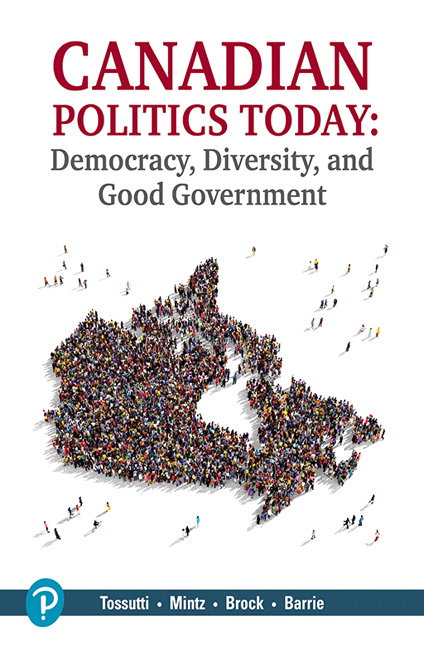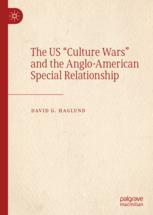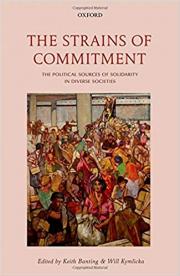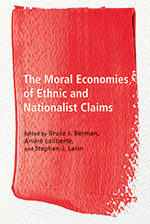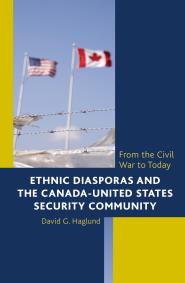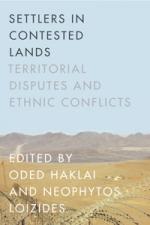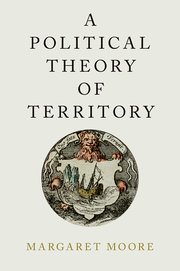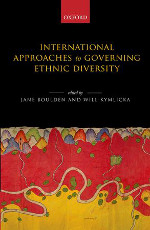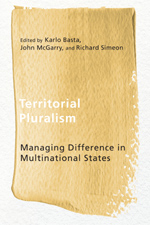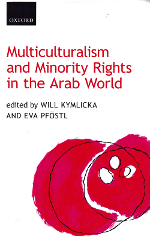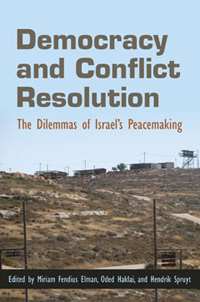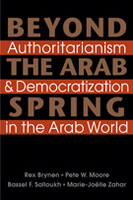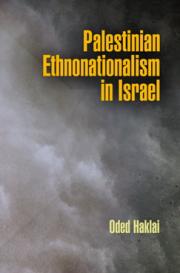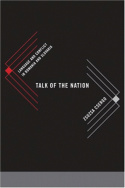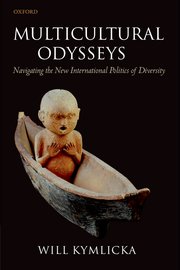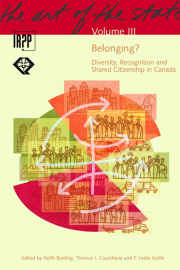Narrow Search
Recent Publications
Canada's Politics Today: Democracy, Diversity and Good Government
(Pearson eText, 2020)
Livianna Tossuti, Eric Mintz, Kathy Brock & Doreen Barrie
This e-textbook offers students a solid understanding of major features of Canadian politics, including national and sub-national political cultures, the workings of the parliamentary system of government, federalism, the protection of rights and freedoms, the judicial system, the public administration and its policy role, the electoral and party systems, political participation and civic engagement, and Canada’s role in global affairs.
The US "Culture Wars" and the Anglo-American Special Relationship
(Palgrave Macmillan, 2019)
David G. Haglund
This book discusses “culture” and the origins of the Anglo-American special relationship (the AASR). The bitter dispute between ethnic groups in the US from 1914–17—a period of time characterized as the “culture wars”—laid the groundwork both for US intervention in the European balance of power in 1917 and for the creation of what would eventually become a lasting Anglo-American alliance. Specifically, the vigorous assault on English “civilization” launched by two large ethnic groups in America (the Irish-Americans and the German-Americans) had the unintended effect of causing America’s demographic majority at the time (the English-descended Americans) to regard the prospect of an Anglo-American alliance in an entirely new manner. The author contemplates why the Anglo-American “great rapprochement” of 1898 failed to generate the desired “Anglo-Saxon” alliance in Britain, and in so doing features theoretically informed inquiries into debates surrounding both the origins of the war in 1914 and the origins of the American intervention decision nearly three years later.
The Strains of Commitment: The Political Sources of Solidarity in Diverse Societies
(Oxford University Press, 2017)
Keith Banting and Will Kymlicka (eds.)
The volume asks three questions: Is solidarity really necessary for successful modern societies? Is diversity really a threat to solidarity? And what types of political communities, political agents, and political institutions and policies help sustain solidarity in contexts of diversity? To answer these questions, the volume brings together leading scholars in both normative political theory and empirical social science.
Who Should Own Natural Resources?
(Polity, 2019)
Margaret Moore
The natural resources of the earth – from oil and water to minerals and land – are crucial to our basic economic and social existence. But who is entitled to control, use and benefit from them? Should anyone ‘own’ the natural bounty of our planet?
This book tackles these questions and examines the different positions in the debate. States claim the right to control the natural resources within their territory. Liberals argue for a system of private ownership rights, including over natural resources, while egalitarians dispute such claims and argue for equal rights to natural resources. Moore shows why these standard approaches to resource justice are wanting, and offers an original approach that examines the different ways in which people interact with resources in order to determine what good is at stake in any particular case.
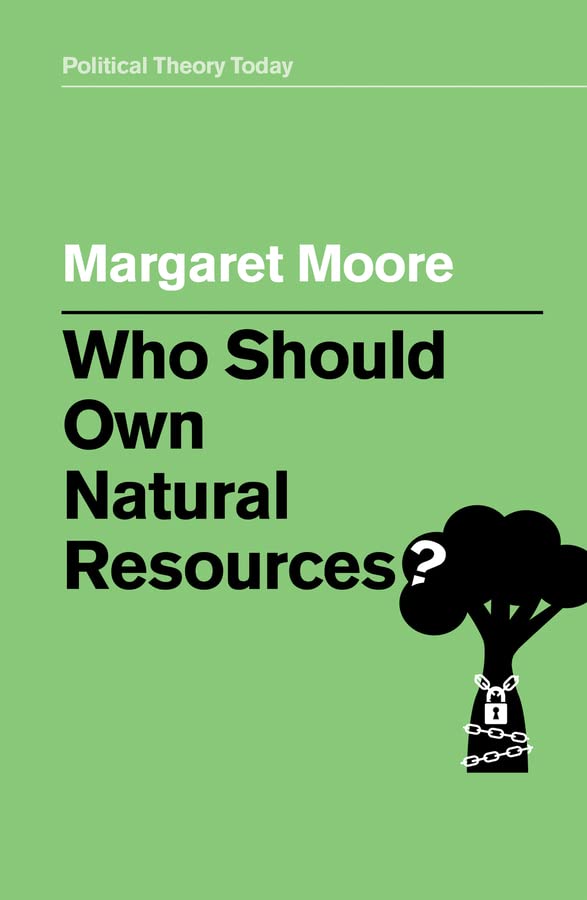
The Moral Economies of Ethnic and Nationalist Claims
(UBC Press, 2016)
Edited by Bruce J. Berman, André Laliberté, & Stephen J. Larin
Bringing together international experts on the politics of ethnicity and nationalism, this final volume in the prestigious EDG series investigates how moral economies have been challenged in identity-based communities in ways that precipitate or exacerbate conflicts. The combination of theoretical chapters and case studies ranging from Africa and Asia to North America provides compelling evidence for the value of moral economy analysis in understanding problems associated with ethnic and nationalist mobilization and conflict.
Ethnic Diasporas and the Canada-United States Security Community: From the Civil War to Today
(Rowman & Littlefield, 2015)
David G. Haglund
Ethnic Diasporas and the Canada-United States Security Community focuses on three diasporas and their impact on North American security relations, the Irish and Germans, which were mainly in the US, and the Muslim diaspora, which is based in both countries. The book begins by examining the evolution of North America from a zone of war to a zone of peace (i.e., a security community), starting with the debate over the nature and meaning of the Canada-US border. It then assesses the role of ethnic diasporas in North American security, looking as to whether ethnic interest groups have been gaining influence over the shaping of the US foreign policy. This debate is also valid in Canada, especially given the practice of federal political parties of catering to blocs of ethnic voters.
Settlers in Contested Lands. Territorial Disputes and Ethnic Conflicts
(Stanford University Press, 2015)
Edited by Oded Haklai and Neophytos Loizides
Settlers feature in many protracted territorial disputes and ethnic conflicts around the world. Explaining the dynamics of the politics of settlers in contested territories in several contemporary cases, this book explains how settler-related conflicts emerge, evolve, and are significantly more difficult to resolve than other disputes. Comparing Israel and the West Bank, Arab settlers in Kirkuk, Moroccan settlers in Western Sahara, Turkish settlers in Cyprus, Indonesian settlers in East Timor, and Sinhalese settlers in Sri Lanka, the book develops a novel theory of settlers in territorial disputes.
A Political Theory of Territory
(Oxford University Press, 2015)
Margaret Moore
Our world is currently divided into territorial states that resist all attempts to change their borders. But what entitles a state, or the people it represents, to assume monopoly control over a particular piece of the Earth’s surface? This book offers normative guidance on many issues facing us today, which involve territory and territorial rights: disputes over resources, boundaries, oceans, unoccupied islands, the frozen Arctic, secessionist conflicts, irredentist conflicts, disputes rooted in historical injustices with regard to land. It explains why territory matters, who has rights over territory, and the scope and limits of those rights.
International Approaches to Governing Ethic Diversity
(Oxford University Press, 2015)
Edited by Jane Boulden and Will Kymlicka
The book charts new territory by mapping the range of international actors who affect the governance of ethnic diversity, and exploring their often contradictory roles and impacts. Most international actors come to questions of ethnic diversity indirectly and reluctantly, on the basis of widely varying mandates many of which were established to fulfill other objectives. They naturally therefore have different priorities and perspectives. And yet, the book identifies a striking convergence amongst international actors around discourses of diversity and equality, demonstrating the existence of an epistemic community where actors work within common vocabularies, discourses and principles that attempt to link human rights, pluralism, development and peace.
Territorial Pluralism
(UBC Press, 2015)
Edited by Karlo Basta, John McGarry and Richard Simeon
Territorial Pluralism answers the quetion of whether a state's authorities will agree to recognize and empower distinct substate communities by examining a wide variety of cases, including developing and industrialized states and democratic and authoritarian regimes. Drawing on examples of both success and failure, it analyzes specific cases to understand the kinds of institutions that emerge in response to demands for territorial pluralism, as well as their political effects.
Multiculturalism and Minority Rights in the Arab World
(Oxford University Press, 2014)
Edited by Will Kymlicka and Eva Pföstl
Since the Arab Spring, Arab states have become the new front line in the struggle for democratization and for open societies. As the experience of other regions has shown, one of the most significant challenges facing democratization relates to minority rights. This book explores how minority claims are framed and debated in the region, and in particular, how political actors draw upon, re-interpret or resist both the new global discourses of minority rights and more local traditions and practices of co-existence.
Democracy and Conflict Resolution
(Syracuse University Press, 2013)
Edited by Miriam Fendius Elman, Oded Haklai, and Hendrik Spruyt
Studies of the Israeli-Palestinian conflict typically focus on how international conditions drive the likelihood of conflict resolution. By contrast, this book considers the understudied impact of domestic factors, and particularly the opportunities domestic politics provide for spoilers to foil peacemaking. Using the contested theory of ‘democratic peace’ as the point of departure, the impact of a variety of internal factors are explored, including electoral systems; state configuration; identity; leadership; and social movements. In reflecting on how domestic politics matters, the book advances both new theoretical insights and policy-relevant suggestions for advancing peacemaking policies.
Beyond the Arab Spring: Authoritarianism and Democratization in the Arab World
(Lynne Rienne, 2012)
Rex Brynen, Marie-Joëlle Zahar, Pete W. Moore, and Bassel F. Salloukh
For years the authoritarian regimes of the Arab world displayed remarkable persistence. Then, beginning in December 2010, much of the region underwent rapid and remarkable political change. This volume explores the precursors, nature, and trajectory of the dynamics unleashed by the Arab Spring. The authors focus on the complex forces that have sustained authoritarianism in the region, as well as the roots of popular mobilization and regime overthrow. They also examine the possibilities for democratic reform—and relapse. Their work offers a comprehensive assessment, at once sophisticated and accessible, of current developments and trends in the countries of the Arab Middle East and North Africa.
Palestinian Ethnonationalism in Israel
(University of Pennsylvania Press, 2011)
Oded Haklai
Arabs make up approximately 20 percent of the population within Israel's borders. Until the 1970s, Arab citizens of Israel were a mostly acquiescent group, but in recent decades political activism has increased dramatically among members of this minority. Certain activists within this population claim that they are a national and indigenous minority dispossessed by more recent settlers from Europe. Ethnically based political organizations inside Israel are making nationalist demands and challenging the Jewish foundations of the state. Palestinian Ethnonationalism in Israel investigates the rise of this new movement, which has important implications for the Palestinian-Israeli conflict as a whole.
Talk of the Nation Language and Conflict in Romania and Slovakia
(Cornell University Press, 2007)
Zsuza Csergo
How can democratization, coupled with transnational integration, resolve conflicts over cultural difference in places that are marked by legacies of nationalist competition? This book explores that question through a comparative study of contestations over language use in the heart of the post-Communist region. Zsuzsa Csergo notes that newly independent governments looked to "rejoin" the West, in particular the European Union, while at the same time asserting control over the institutions they considered key to the reproduction of national cultures. These national projects resulted in renewed salience for minority language rights and a complicated politics triggering EU concerns about the treatment of regional/cultural minorities.
Multicultural Odysseys: Navigating the New International Politics of Diversity
(Oxford University Press, 2007)
Will Kymlicka
Written by the world's leading liberal multiculturalist whose work has defined debates in the area, Kymlicka offers a lucid and thought-provoking account of the likely future of the international politics of diversity through an inter-disciplinary account, drawing on the fields of normative political theory, social studies, law, and philosophy, accessible to academics and practitioners alike.
Belonging? Diversity, Recognition and Shared Citizenship in Canada
(McGill-Queen's Press, 2007)
Keith Banting, Thomas Couchene and Leslie Seidle (eds.)
This volume sheds light on Canada’s approaches to recognizing and accommodating diversity. It examines instruments of shared citizenship, their effectiveness and their capacity to respond to new pressures and concerns
Multiculturalism and the Welfare State: Recognition and Redistribution in Contemporary Democracies
(Oxford University Press, 2006)
Keith Banting and Will Kymlicka
Does the increasing politicization of ethnic and racial diversity of Western societies threaten to undermine the welfare state? This volume is the first systematic attempt to explore this linkage between "the politics of recognition" and "the politics of redistribution"
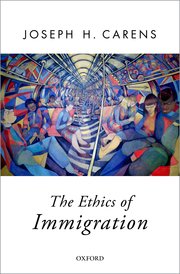 The Ethics of Immigration
The Ethics of Immigration
(Oxford University Press, 2013)
Joseph H. Carens
Combines timely discussion of a hot-button issue with broader ethical considerations around justice and equality
Basta, Karlo, John McGarry and Richard Simeon (eds.) (2015) Territorial Pluralism: Managing Difference in Multinational States (UBC Press)
Berman, Bruce, André Laliberté and Stephen Larin (eds.) (2016) The Moral Economies of Ethnic and Nationalist Claims (UBC Press)
Berman, Bruce, Rajeev Bhargava and André Laliberté (eds.) (2013) Secular States and Religious Diversity (UBC Press)
Bertrand, Jacques and Andre Laliberte (eds.) (2010) Multi-Nation States in Asia: Accommodation or Resistance (Cambridge University Press)
Bertrand, Jacques and Oded Haklai (eds.) (2014) Democratization and Ethnic Minorities: Conflict or Compromise? (Routledge)
Choudhry, Sujit (ed.) (2008) Constitutional Design for Divided Societies: Integration or Accommodation? (Oxford University Press)
Eisenberg, Avigail and Will Kymlicka (eds.) (2011) Identity Politics in the Public Realm: Bringing Institutions Back In (UBC Press)
Eisenberg, Avigail, Jeremy Webber, Glen Cloutard, and Andrée Boiselle (eds.) (2014) Recognition and Self-Determination: Dilemmas of Emancipatory Politics (UBC Press)
Gagnon, Alain and Michael Keating (eds.) (2012) Political Autonomy and Divided Societies: Imagining Democratic Alternatives in Complex Settings (Palgrave Macmillan)
Good, Kristin, Luc Turgeon and Phil Triadafilopoulos (eds.) (2014) Segmented Cities? How Urban Contexts Shape Ethnic and Nationalist Politics (UBC Press)
Panossian, Razmik, Bruce Berman and Anne Linscott (eds.) (2007) Governing Diversity - Democratic Solutions in Multicultural Societies/ Gouvernance et diversité - Des solutions démocratiques pour des sociétés multiculturelles (Montreal: Rights & Democracy)
Martynenko, Oleg, Yuri Belousov and George Perlin (eds.) (2010) Racial Profiling, Lviv: Astrolabia.
Martynenko, Oleg, George Perlin and Yuri Belousov (eds.) (2010) Combating Hate Crimes , Lviv, Astrolabia.
Tyaglo, Olksandr and George Perlin (eds.) (2010) Democratic Policing, Lviv: Astrolabia.
Ladychenko, Tityana, Tamara Bakka, Lyubov Margolina, Valerii Dubrovskii, Oleksandr Zheliba, Sergiy Klepko and Oleksandr Narovlianskii. (2010). Methods of Teaching the School Discipline Civic Education: Fundamentals of Democracy, Kharkiv: Osnova Publishing Group.
Kolodii, Antonina and Vitaliy Zablotskii, Viktor Stepanenko and George Perlin. (2009). Fundamentals of Democracy, THIRD REVISED EDITION, Lviv: Astrolabia.
Kolodii, Antonina and Viktor Andrushchenko, Volodymyr Volovych, Andriy Gorbachyk, George Perlin, and Sergei Riabov. (2005). Fundamentals of Democracy, SECOND EDITION, Kyiv, V.I. Press.
Tyaglo, Olksandr and Valentin Chub, Piotr Tsymbal, and Marina Stepavalenko. (2005). The Protection of Human Rights by Law Enforcement Personnel, Kyiv.
Sancton, Andrew. (2003). Systems of Urban Government.
Leduc, Lawrence. (2002). Participatory Democracy: Referendums in Theory and Practice.
Young, Lisa. (2002). Regulating Political Finance in Liberal Democratic Societies. Kiev: Osnovy Press.
Kolodii, Antonina and Viktor Andrushchenko, Volodymyr Volovych, Andriy Gorbachyk, George Perlin, and Sergei Riabov. (2002). Fundamentals of Democracy, FIRST EDITION, Kyiv, V.I. Press.
Smith, Jennifer. (2001). The Role of the Legislature in Liberal-Democratic Societies. Kiev: Osnovy Press.
Cross, K. and R. Hackett. (2000). Political Communication and the News Media in Democracies: Competing Perspectives. Kyiv: Osnovy Press.
Perlin, George (2008) Literature Review of Applied Research on Democratic Development (Commissioned by the International Development Research Centre (IDRC) on behalf of IDRC, the Canadian International Development Agency,and the Department of Foreign Affairs and International Trade)
